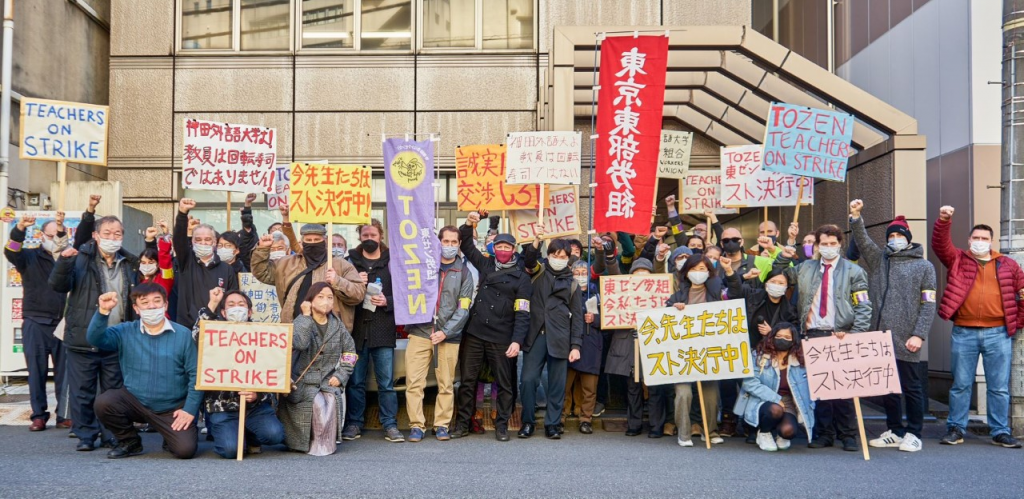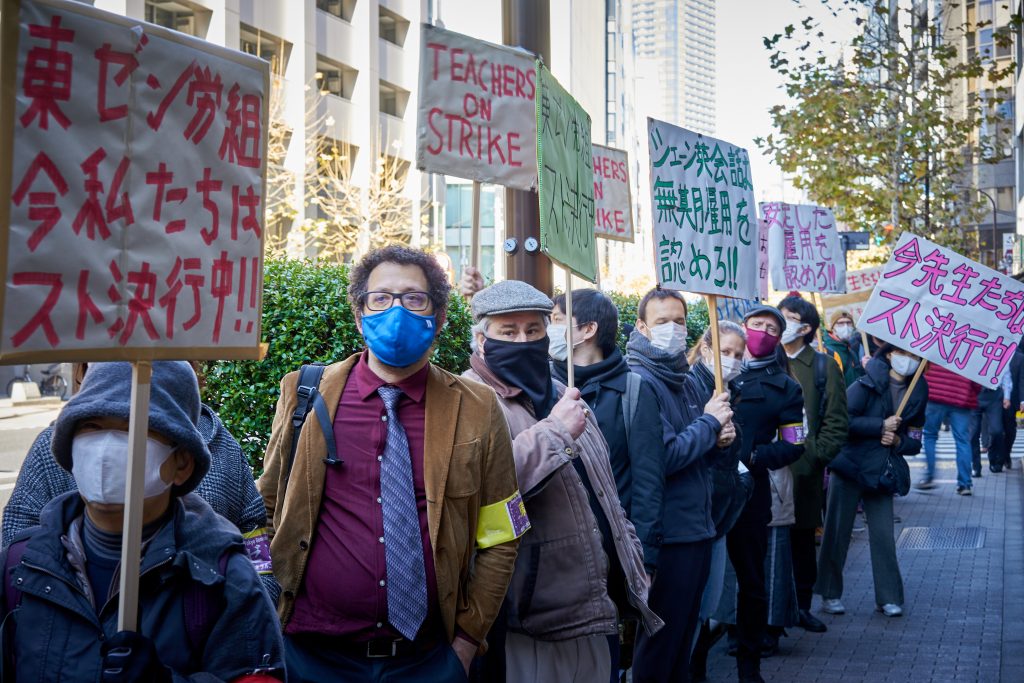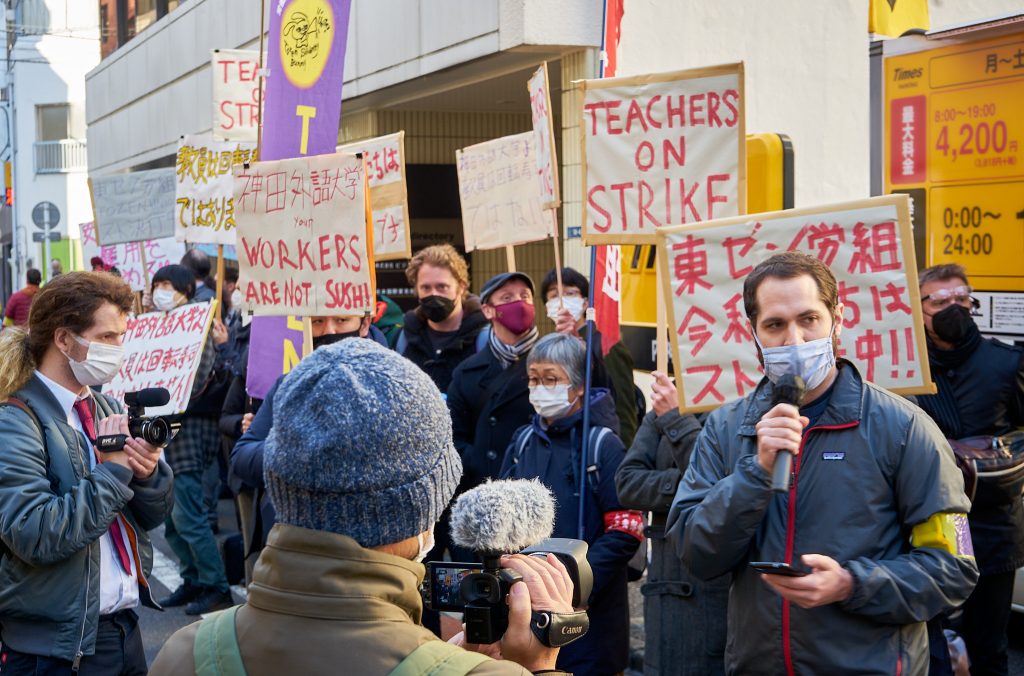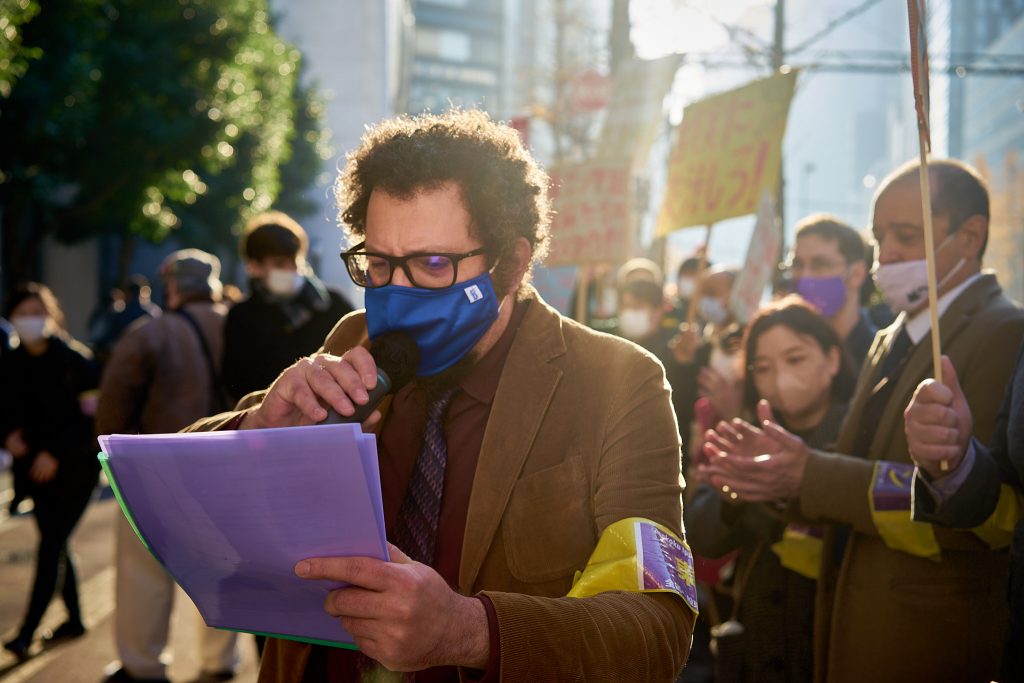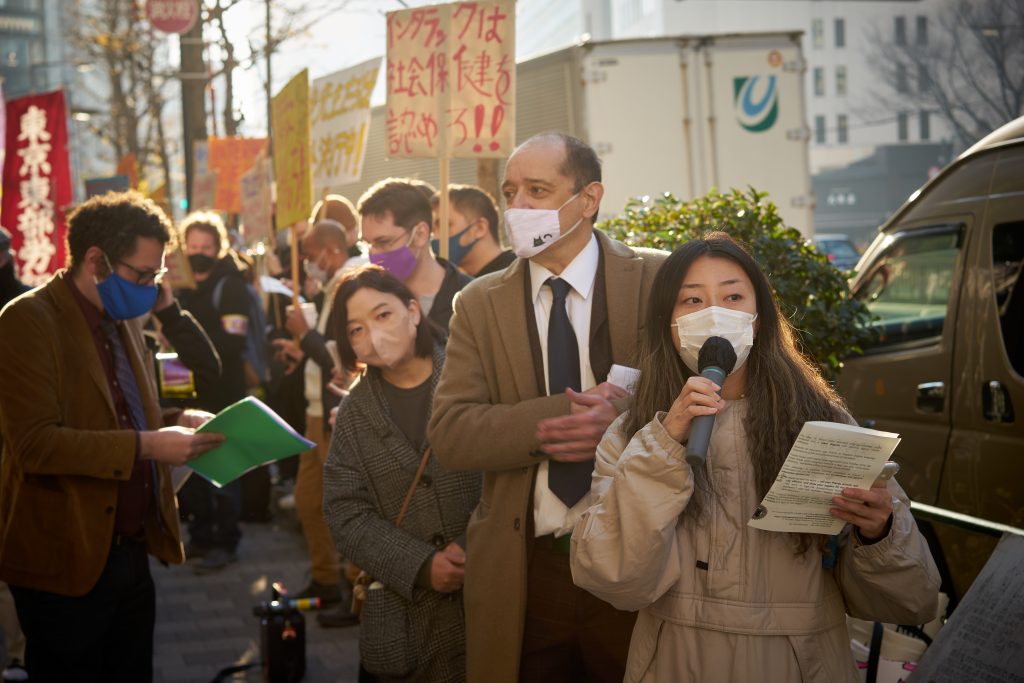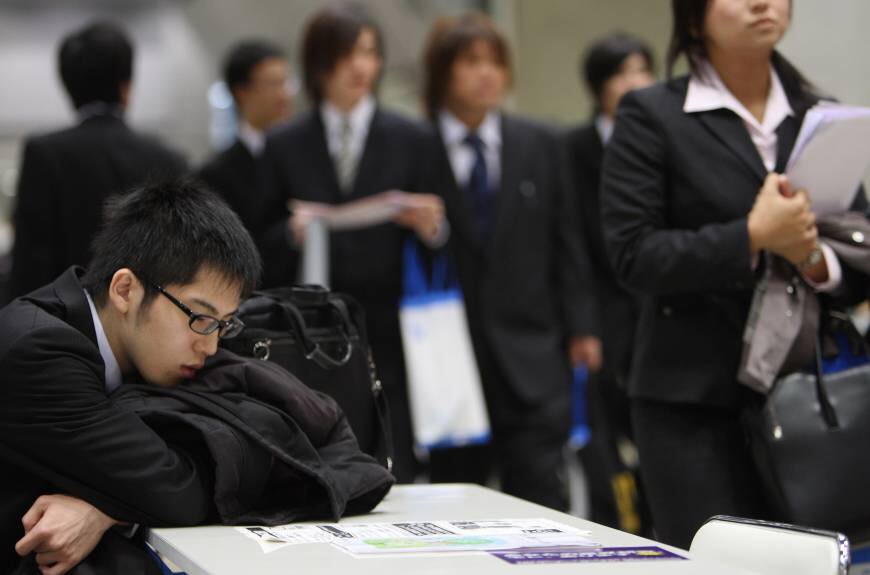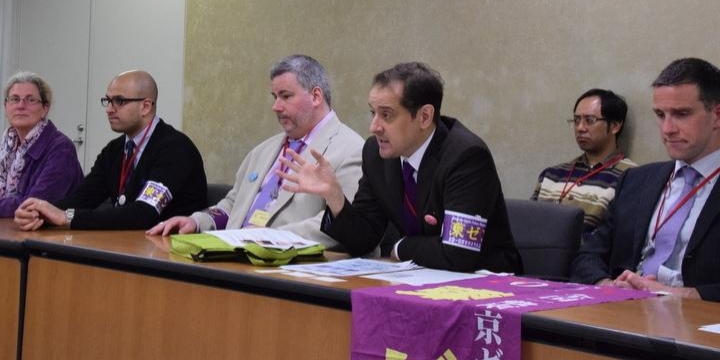Exactly 50 years back, the streets of Japan boiled in revolution. The protests against the Narita airport and alleged collusion of then Prime Minister Eisako Sato with the United States in the Vietnam war brought the cities to a halt. Tear gas, water cannons and the occupation of University of Tokyo’s infamous Yasuda auditorium have been etched as vivid memories amongst people of that generation.
50 years later, the streets are silent or at least, the mainstream Japanese media projects it to be. Japan’s largest media corporations came under fire for deliberately not reporting protests and people’s opinions after the 2011 Great Eastern Earthquake and Tsunami. Not very long after that, in 2012, the Japanese government amended the labour contract law.
The amendment in the labour contract law implied that all fixed-term employees can give themselves a permanent status if they have been employed for over five years. The lawmakers have claimed that it is for enhancement of job security and were challenging the rising fixed-term employees at various institutions. As of 2015, Tohoku University has 5,771 irregular employees as opposed to 4,686 regular employees. Yet, institutions have found a way to exploit the loophole: To not renew a fixed-term employee beyond five years.
Since the implementation of the law starting from April 01, 2013, five years have been completed on March 31, 2018. This implies that institutions can officially decline to renew any fixed term contracts and prevent the irregular employees from becoming regular. Tohoku University, like many others in the country, has decided to do so.
With very little reporting about the same in the mainstream English media apart from the exception of Hifumi Okunuki’s op-ed article in ‘The Japan Times’ in 2016, the issue remains unclear and unknown, to the student community and the outsiders. The regular protests by Tohoku University Kumiai on the Katahira campus have attracted very little attention from the students. “We really want the students to know about it,” said one of the Kumiai members to the Sentinel who has decided to remain anonymous.
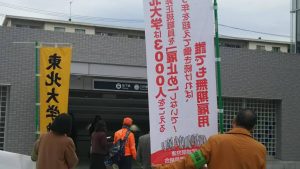
Protests against the administrative decision near Kawauchi station
The university has already initiated the process of terminating the contracts of the fixed-term employees by not renewing them. It has substituted them with new employees who may face the same fate 5 years from now. “The university says that it doesn’t have any money to guarantee our employment in the future but they have been constructing buildings after buildings and a lot of them have also been for the sheer symbolism of reconstruction and revival post-2011,” the Kumiai member said. “The lawyer representing the university is from Tokyo. Appointing someone all the way from Tokyo costs a lot of money,” the member added.
Last year, the university put in place an examination for the irregular employees, some of whom who have worked for nearly a decade at the university. The set terms were clear: The ones who fail to clear it, would be terminated immediately. In a somewhat expected move, only 30% of the test-takers cleared the examination. “Everyone from the Ryugakuseika department cleared the test which could probably be reasoned for their ability to communicate in English,” said the Kumiai member.
This year also saw the shift in leadership as President Hideo Ohno stepped into the shoes of presidency, succeeding President Susumu Satomi. “There has been no change due to President Ohno stepping in. It is all the same,” the Kumiai member said. “He said he requires time for studying the topic deeply,” the member added. President Ohno replied the same when ‘The Sentinel’ asked him about this issue in an interview back in January 2017, few weeks after he was announced as the President-elect. ‘The Sentinel’ also tried asking this to President Satomi in an interview but the secreteriat refused to give us permission to ask him anything about the issue.
It is also surprising to note that most of these 3,243 employees are female employees. Since most of them have a family to take care of and the household expense is majorly supported by the husband’s income, they choose to take an irregular job. With Prof. Noriko Osumi stepping in as the new Vice President for Public Relations and Promotion of Diversity, it is expected that the gender imbalance will be seen with greater importance in administrative decisions. She is the first female professor at the School of Medicine and is also the Director of TUMUG (Tohoku University Centre for Gender Equality Promotion). Yet, the Kumiai member thinks otherwise. “She has focussed only on researchers and regular workers. She has not addressed any of the gender issues that the 3,243 employees who are on the brink of losing their jobs are facing.”
The fine prints and implications of this new law which was supposed to guarantee more jobs bring in new details. “After completion of 5 years, the fired employee can re-join the institution after a break of 6 months for another 5 years. So, some of the employees who left the university in March this year may be able to re-join in October. This is absolutely incomprehensible. I cannot do without 6 months’ pay,” said the Kumiai member. Questions like what would happen if the university hires new employees in the period between April and October remain ambiguous and no clear answers were found.
Like Tohoku University, Hokkaido University and Osaka University are also amongst other centres for higher education who have decided to axe the jobs. On the other hand, the negotiations between the labour union at University of Tokyo and the administration has been somewhat successful and irregular employees are still holding on to their jobs. The union at Tohoku University is always in constant discussion with administration about important issues but the number of members have fallen over the years. “Many are not concerned unless their jobs are affected,” the Kumiai member said.
A part of this problem can also be traced back to Prime Minister Junichiro Koizumi’s decision in 2003 to turn all Japanese national universities into institutions with corporate status or, ‘national university corporation’, as they are now known as. This has pressured the universities to look out for their own funds. With MEXT reducing its subsidies to the national universities by 1% each year, the universities have responded by hiring more irregular staff and axing clerical jobs. United Kingdom adopted similar idea back in 1988 under Prime Minister Margaret Thatcher but responses from citizens have been mixed.
Back in July 1974, the Supreme Court delivered a historic verdict in the Toshiba Yanagi-cho Factory case where seven plaintiffs worked on revolving 2 month-contracts and one of them was renewed 23 times. The Supreme Court upheld it as jotai-setsu (Legal principle of abuse of the right to dismiss applies if circumstances suggest that employment is in effect permanent, even if written contract indicates a fixed term).
The court case between Tohoku University and the 3,243 workers shall witness its first hearing on August 22 this year. The workers are represented by a voluntary lawyer from Sendai city. “Well, the court case will take a long time,” the Kumiai member said.
Article 02 of Japanese Labour Standards Act says, “Working conditions should be determined by the workers and employers on an equal basis.” When asked if the goal of attaining this equality near, the Kumiai member responded, “There is a long way to go.”
For updates about the court case, visit the website of Tohoku University Kumiai : http://tohokudai-kumiai.org
The Sentinel shall also publish the official statement from the university once it receives.
As reported by The Sentinel Bureau.
Photos Courtsey : Tohoku University Kumiai Facebook Page (Public)
References :
- No legal cure-all for fixed-term job insecurity (April 24, 2012): https://www.japantimes.co.jp/community/2012/04/24/issues/no-legal-cure-all-for-fixed-term-job-insecurity/#.WzWEu62B2qA
- Labour Standards Act : http://www.japaneselawtranslation.go.jp/law/detail_main?id=5&vm=2&re=
- ‘Five-year rule’ triggers ‘Tohoku college massacre’ of jobs : https://www.japantimes.co.jp/community/2016/11/27/issues/five-year-rule-triggers-tohoku-college-massacre-jobs/#.WzWG8a2B2qA
- 1968 : The year Japan truly raised its voice : https://www.japantimes.co.jp/culture/2017/11/19/arts/1968-year-japan-truly-raised-voice/#.WzWzsa2B2qA
- Japan’s universities struggling under corporate status : https://www.japantimes.co.jp/opinion/2018/05/14/commentary/japan-commentary/japans-universities-struggling-corporate-status/#.WzXbqa2B2qA
- Tohoku University Kumiai : http://tohokudai-kumiai.org
—————–
Original Link to this article.
